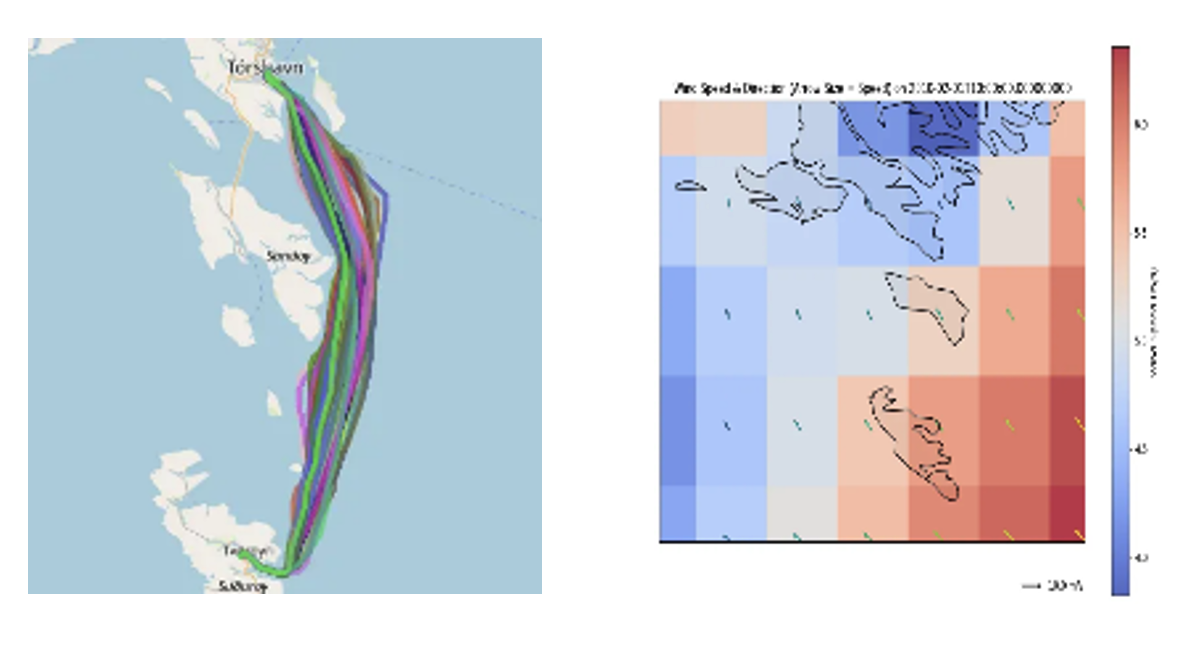Motivation
Maritime operations face growing pressure to improve sustainability, with regulations becoming more stringent worldwide. For optimal route generation that considers the environment, it is necessary to develop a fuel consumption model that reflects environmental information.

Methodology
- Reflect environmental information by integrating information obtained from satellite environmental data with AIS data
- Regression and neural surrogate modeling for fuel estimation
- Extract a physics-based resistance value using AIS and environmental data
Contribution
- Proposes a robust hybrid fuel consumption prediction model, resilient to environmental changes, by integrating physics-based knowledge.
- Contributes to the development of an optimal routing system aimed at achieving tangible reductions in carbon emissions through the developed model.
